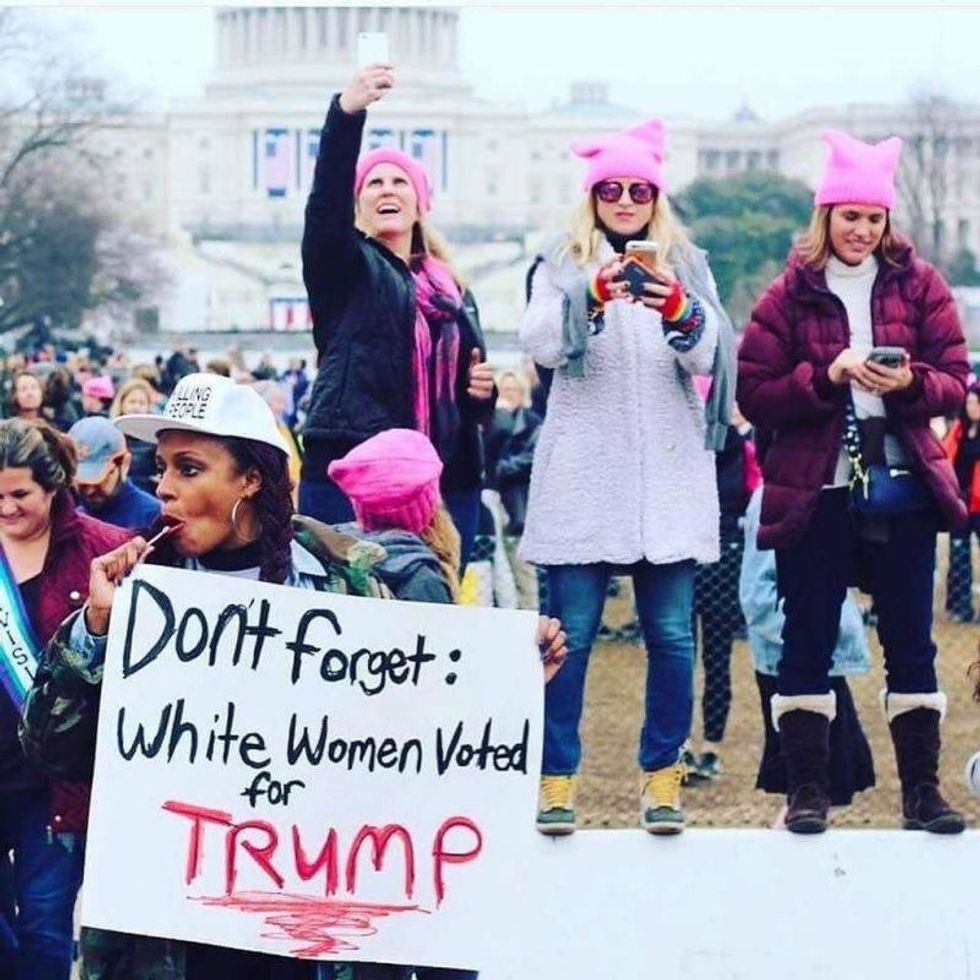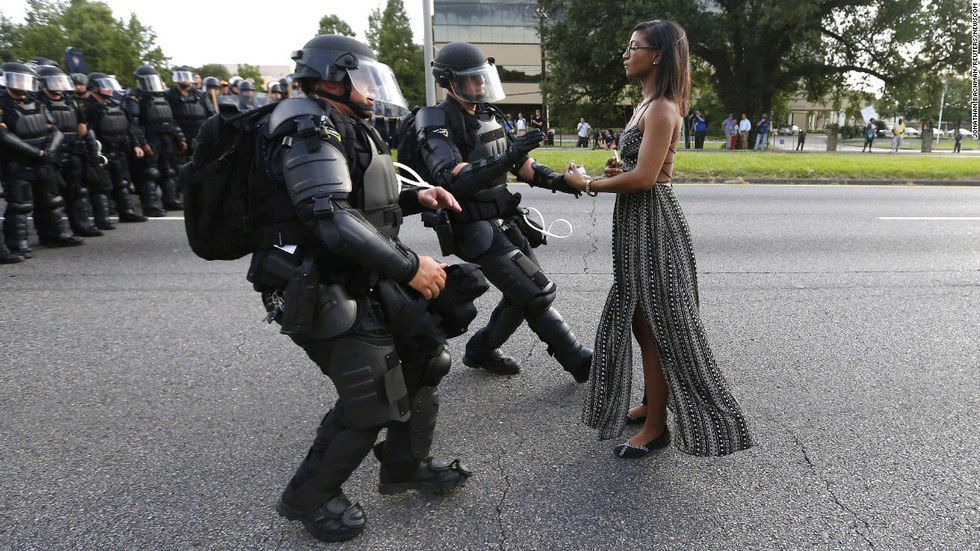On January 21, women gathered globally to unite against the threat to their human rights, following a set of Unity Principles defined by the Women’s March organization. Over the past week, a dominant narrative has emerged about what took place on that day. The coverage highlighted peaceful protests, pink pussy hats, and incredibly creative signs. The New York Times shared pictures from the marches that took place on all seven continents. Other articles highlighted how zero arrests were made, despite the sheer number of participants, which amounted to more than the number of people who attended Trump’s inauguration. Women everywhere were patting themselves on the back for a job well done and brainstorming ways in which they could carry that momentum forward. At first, I was one of those women, but gradually I became torn.
I reflected on my own experiences in a 'Not My President' March in the Boston Commons the night of the inauguration, and the Women's March in Providence I attended the next day. My roles in these marches were passive. I didn’t make a sign, I didn’t wear a pink pussy hat. I just made myself present and forced myself to watch. I watched people with their signs that read “the only good fascist is a dead one,” and “not my president,” and other awful insults towards Trump. I watched a cameraman push his camera into my face, and the face of my friends while I tried to listen to a Northeastern worker on strike speak, a young man translating her words into English. The chant "Sí, se puede" just didn't last long enough for me. I watched white men yell about destroying patriarchy while white women tried to start a “my body, my choice” chant. I recognized I was part of history being made, just by showing up. At the same time, I realized I didn't agree with everything I was seeing.
In the week following the march, I started to hear the voices of the women who were being marginally silenced by the overwhelming buzz of the dominant narrative. Suddenly their emerging truths were articulating the points of discomfort I was having difficulty expressing. A story emerged about a group of Native Americans who were mocked, microaggressed and otherwise treated disrespectfully by white women at the march.
Another story was of Angela Peoples, a black woman who held up a sign which reminded us all that the majority of white women voted for Trump in this election.
Another was the reflection of a Muslim woman who felt disrespected by the sight of an American flag as a headscarf in the 'We the People' posters.
One account was of a woman of color who took issue with the pink pussy hats, feeling as though these only represented white women. So which narrative of the march is true?
The answer is all of them. All of these versions are the truths of this march, they just mean different things to different people. Sometimes we need to look beyond the dominant narrative in order to critique our society and move forward. For example, marchers prided themselves on protesting peacefully, but it's easy to protest peacefully when you were never perceived as a threat in the first place. Think of other situations in which people of color tried to peacefully protest, and were met with police in riot gear. The reality is that some truths are inconvenient, and therefore hard to swallow.
My truth about the march is the following: it reinforces the idea that white people will only realize the rights of people of color when it is in their best interest. This is a claim about the overwhelming system of racism we are all embedded in, not an insult to any individual who participated. It is true white women paved the way to my voting rights. For that, I am grateful. For organizing this march, I am grateful. But we must not forget the difference of privilege which allowed this to be the case. There are so many good things to say about this march. Yet I have to wonder if we will see these same crowds at the next Black Lives Matter rally. Or when Standing Rock is forced to protest again. I am torn because I just don't think we will. It is easy to view this as negative, or divisive, but if we are not all free to critique this I tmarch, then those concerns will not be addressed as we try to progress. If we dismiss any truths regarding this march, we will directly violate the "Unity Principles" of that march.

























